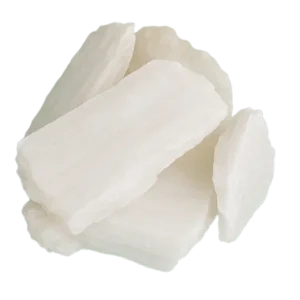agricultural ploughing
تماس بگیرید
Agricultural Gypsum (Agricultural Gypsum)
Agricultural gypsum is a natural mineral (calcium sulfate dehydrate – CaSO·2H₂O) used as a powder or granular in improving soil quality and increasing the productivity of agricultural products. It is usually produced from crude gypsum of moderate purity and contains useful elements of calcium (Ca) and sulfur (S).
Description
Agricultural applications
1. the correction of saline and sodium soils:
Substituting sodium (Na) with calcium (Ca2) in sodium soils and lowering pH.
Improving weather permeability in heavy clay soils.
2. supply of calcium and sulfur required by plants:
Calcium: essential for root growth, cell wall strength, and prevention of fruit rot (such as tomato flower rot).
Sulfur: Required for protein synthesis and formation of chlorophyll.
3. reducing the toxicity of aluminium in acidic soils:
In acidic soils, chalk reacts with aluminum (Al3) and kills its toxicity to plant roots.
4. improving soil structure and preventing erosion:
It causes better adhesion of soil particles and reduced runoff.
5. increase the efficiency of fertilizers:
Gypsum helps to better absorb elements such as nitrogen, phosphorus and potassium.
🔹 Advantages of agricultural plaster over lime (lime)
Higher ✅ solubility → of the effect faster in the soil.
✅ No drastic change in soil pH (suitable for neutral and alkaline soils).
✅ supply of calcium and sulfur at the same time.
✅ Helps to break down compressed layers of soil (hardpan).
🔹 The use of agricultural ploughshares.
Amount to be consumed (depending on soil type and crop):
Salt and sodium soils: 1 to 5 tons per hectare.
Conventional soils for calcium supply: 500 kg to 2 tonnes per hectare.
Solubilized (for sulfur): 10 to 20 kg per 1,000 litres of water.
The method of use:
Surface diffusion + mixing with soil before planting.
Added to irrigation water (in drip systems).
🔹 The Difference Between Agricultural Gypsies and Construction Gypsies
Features of agricultural plaster construction plaster.
Average purity (80-90%) High (95% +)
Impurities may contain calcium carbonate without harmful impurities
Larger grains and sometimes smooth, irregular grains.
The Application of Soil Modification and Nutrition of Constructive Plants and Industry
❓ Frequently Asked Questions (FAQs)
Is agricultural plaster suitable for all soils?
Yes, but in severe acidic soils it is better to use along with lime.
Is agricultural plaster applicable to organic products?
Yes, because it is a natural mineral and approved in organic farming.
Is agricultural plaster different from Paris plaster?
Yes! Paris plaster (CaSO· 0.5H2O) is produced after plaster stone is baked and used for medical/industrial purposes, while agricultural plaster is unprocessed.





Reviews
There are no reviews yet.